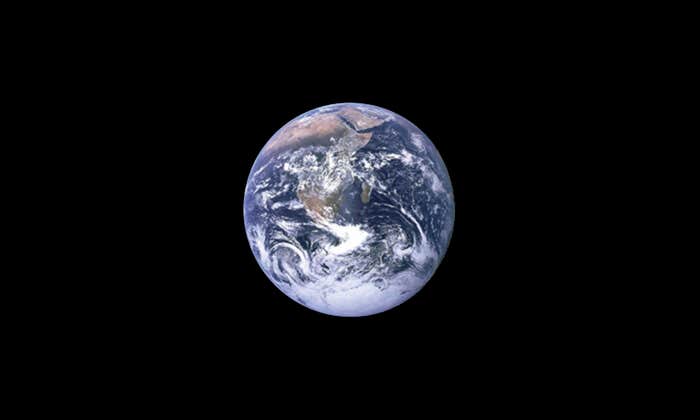A physicist and a philosopher walk into a lab… no, this isn’t the start of a joke. It’s an everyday occurrence in the lab of Andrew Briggs, Professor of Nanomaterials at Oxford University. While working on how to exploit quantum mechanics to better store and process information, he also maintains an active interest in philosophy, and even has a philosopher working as part of his team. His interests extend into the nature of scientific inquiry, and to the nature of human uniqueness—hearkening back to the very first issue of Nautilus.
How does philosophy play a role in physics?
Well, for the last three years we’ve had a philosopher in residence in my laboratory. For all that time he sits in the same office as the others who are doing experimental work, which has proved an immensely fruitful interaction that works two ways. On the one hand, he has taken a great deal of interest in the experiments we’ve been doing and reshaped our philosophical understanding of them. Conversely he’s identified how we could do new experiments that would sharpen up the tests of some of those concepts. So he’s actually suggested experiments that we should do and he’s now got a major research program of his own in the philosophy of physics.
So what is this doing? Well, it’s helping those of us who are doing the experimental science and its theoretical basis to understand more clearly what the deeper questions are; to sharpen them up and to formulate them better. Conversely it’s prompting us to think of questions that maybe we otherwise wouldn’t have thought of.
Conversely, how are philosophers using physics in their work?
I think one of the most fundamental questions you can ask is what is the nature of reality? Because that underpins a lot of other questions that are worth asking. Is morality real? Is truth real? Is a relationship with God real? And if you’re going to ask questions like that sensibly, you’ve got to know what you mean by real and reality—a lot of this gets thrown up into the air with the advent of quantum theory, because quantum theory says that what you previously thought of as reality may need rethinking partly because there isn’t an objective thing out there whose properties are determined just by the object itself. It depends on the interaction with the observer. And so that means you’ve got to rethink what you mean by reality—and if you’re going to think about questions like that, you need all the technical resources that philosophers can bring to bear to be sure that your thinking is clear.
You’ve talked about the connection between consciousness and dignity. How are they related?
The reason that science has been so spectacularly successful for the last 300 years or more is because it set itself very limited objectives: to address the questions that are amenable to a scientific investigation. So if you take a topic like consciousness, it’s perfectly legitimate to set yourself a limited objective of saying, you know, what are the aspects of consciousness that are amenable to scientific enquiry. I think it’s spectacular the progress that’s being made.
People have been puzzling over the nature of consciousness for a very, very long time and to expect that in one morning we’re going to resolve the whole issue is a bit optimistic.
What I was really doing with the question about dignity was not so much wanting to change the nature of the scientific discussion, but rather to think about the application. So it seems to me this is just a statement of belief that I think we widely share. We only do justice to other people and our relationships with them if we respect their dignity—it seems to me that if we have a better understanding of the nature of consciousness that may be able to enhance our appreciation of the dignity of each person that we interact with. What I was doing with that question was to see whether we could gain some new insights from the advances that are being made in the study of consciousness that would be constructed in our understanding of human dignity.
And that brings up the question of human uniqueness?
Yes. It’s another of these profound questions isn’t it? What is it that humans have in common with the environment—specifically with other living creatures—and what is it that makes humans distinct? For many years now there have been some wonderful discoveries about the things that we have in common with other animals. It’s pretty obvious if we’re going to eat bananas we’re going to have to have a rather similar digestive system to other animals that eat bananas. So you would expect to find things in common between humans and other animals; in many ways every time people have tried to give an operational articulation of the uniqueness of being a human, people have come along and said “well, you can find animals that share that to some extent.” Take the ability to solve puzzles. It’s amazing how birds can use tools to do tasks that are deliberately set up to be rather difficult for them. So things like using tools and problem solving and so on can be found in the animals. I don’t think that actually takes away from the question of what it is that is unique about us as humans—it might lie in these areas of dignity. It might lie in the area of responsibility. Maybe to be human means to be responsible for choices that I make and deeds that I do. The advances in neurophysiology may contribute to how we understand what those decision making processes are and so on, but there may then be another aspect that may not come from within science, may need to come from outside science, that gives this unique quality of this capacity for responsible actions and choices.


























